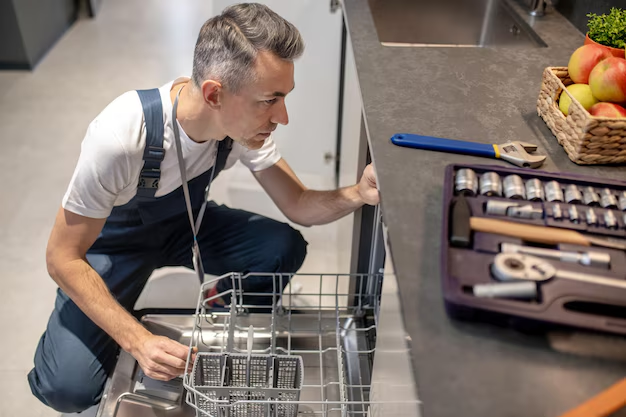What Are a Landlord’s Obligations Regarding Stoves and Refrigerators?
Have you ever moved into a new apartment and wondered, “Does my landlord have to provide a stove and refrigerator?” It's a common question that arises for many tenants, and the answer isn't always straightforward. Let's delve into the complex world of rental appliances and explore the responsibilities landlords have in providing these essential home features.
Understanding Landlord Obligations
Basic Rental Unit Requirements
When it comes to rental units, landlords must adhere to certain basic standards to ensure the habitability of the dwelling. These standards, however, can vary extensively based on local laws and regulations.
What Constitutes a Habitable Home?
A habitable rental unit typically meets health and safety standards. This includes:
- Proper ventilation
- Adequate heating
- Running water and plumbing
- Electrical systems in good working order
The habitability of a rental unit often stands as a key determining factor in what landlords are required to provide, potentially including appliances like stoves and refrigerators.
Stoves and Refrigerators: Do They Qualify as Essential?
The Role of Local Laws
Local laws significantly influence whether landlords need to provide stoves or refrigerators. Some municipalities specify that landlords must provide a "functional kitchen," which could imply the inclusion of essential kitchen appliances.
Lease Agreements Play a Vital Role
The lease or rental agreement might explicitly detail what appliances are included. If a stove and refrigerator are mentioned in the lease, the landlord must maintain these.
When Appliances Are Not Required
Situations Where Landlords Are Not Obligated
In certain cases, landlords might not be required to provide these appliances. For example:
- Empty Units: Some rental properties are leased as-is, meaning no appliances are included.
- Lower Rent: In some low-cost housing units, landlords may reduce rent and omit providing appliances to keep costs down.
If stoves and refrigerators are not part of the initial agreement or local law doesn't mandate them, landlords may not need to provide these items.
Tenant Options and Workarounds
Tenants in units lacking these appliances might:
- Purchase or rent the necessary appliances themselves.
- Negotiate with the landlord for appliance upgrades, potentially in exchange for a slightly higher rent.
Benefits and Considerations for Landlords
Why Landlords Might Provide Appliances
Landlords often choose to provide stoves and refrigerators even when not legally required. Here are some reasons why:
- Attracting Tenants: Units equipped with appliances are more appealing,
- Competitive Edge: Having a well-equipped kitchen can differentiate a property in a competitive rental market.
- Potential to Charge Higher Rent: Appliance availability can justify higher rental prices.
Considerations and Costs
However, providing these appliances comes with considerations:
- Cost of Purchase and Installation: Initial investments can be high.
- Maintenance and Repairs: Landlords are responsible for maintaining supplied appliances, leading to potential repair costs.
Responsibilities and Expectations
When landlords do provide appliances, both parties have responsibilities to ensure their upkeep and continued use.
Landlord Responsibilities
- Maintenance and Repairs: If a supplied appliance breaks down, it’s generally up to the landlord to repair or replace it.
- Inspections: Regular inspections help ensure appliances stay in good working condition.
Tenant Responsibilities
- Proper Use: Tenants must use appliances according to their intended purposes and instructions.
- Reporting Issues Promptly: Tenants should inform landlords of any appliance issues immediately to prevent further damage.
Navigating Appliance Issues
What Tenants Can Do
- Check Lease Agreements: Verify whether appliances should be provided or maintained by the landlord.
- Discuss with the Landlord: Open communication can resolve many issues and misunderstandings.
- Seek Legal Advice: When disputes arise, consulting with a tenant rights attorney can provide clarity on legal obligations and options.
Summary Section: Practical Takeaways for Tenants and Landlords
🔑 Key Points for Tenants
- Always Check the Lease: Ensure it details appliance provisions and maintenance responsibilities.
- Understand Local Laws: These can dictate what appliances your landlord must provide.
- Communicate Clearly: Report any issues in writing for a documented trail.
🔑 Key Points for Landlords
- Clarify in Lease: Explicitly state which appliances are provided.
- Regular Maintenance: Schedule inspections to maintain appliance condition.
- Cost-Benefit Analysis: Weigh the benefits of providing appliances against costs and competitive advantages.
Final Thoughts
Navigating landlord-tenant relationships can be complex, especially concerning the provision of appliances like stoves and refrigerators. The key lies in understanding local laws, detailed lease agreements, and maintaining open lines of communication. Both landlords and tenants can make informed decisions that benefit their living and rental experiences by grasping these fundamentals.
Ultimately, whether certain appliances must be included often hinges on legal requirements and mutual agreements. By understanding these elements, both parties can foster a harmonious and clear rental relationship.

